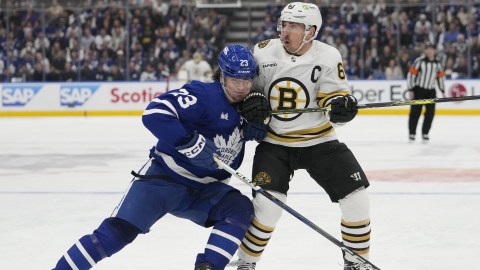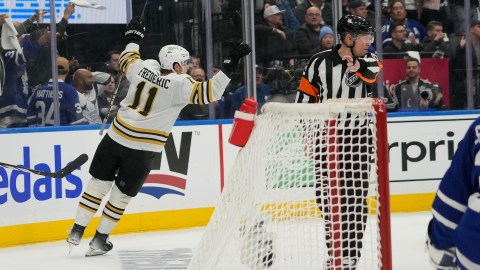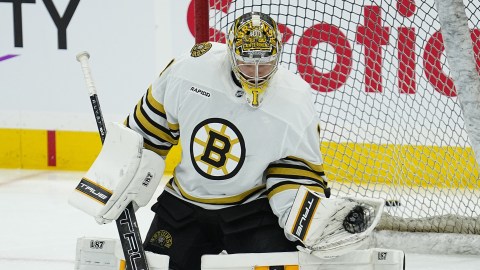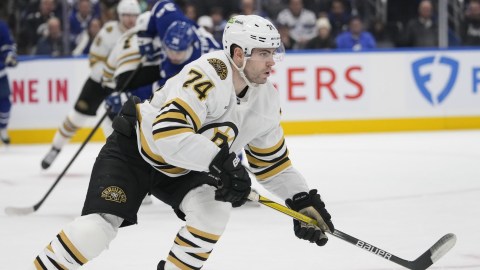David Krejci was just 3 years old, and Vladimir Sobotka was just 2. They were living in Czechoslovakia, what is now the Czech Republic. Slovakia’s Zdeno Chara was 12 years old. And German Marco Sturm was 11, old enough to remember Nov. 9, 1989 — the day the Berlin Wall fell.
It became the symbolic trigger in the demise of communist rule in Eastern Europe, the collapse of the Soviet Union and the end of the Cold War.
"Every time [the East German] teams came to play, there would be a few guys missing because they just wanted to run away," said Sturm, remembering those years before the wall came down, when defecting athletes were not uncommon.
Sturm recalled playing tournaments as a child in East Germany and seeing the drastic difference between the quality of rinks and facilities on the other side of the border. Being from the southern part of the country, he remembers the day the wall came down, but says it didn’t have the same impact on his family as it did for those living in Berlin.
However, he saw the impact on the hockey front years later.
"When I was about to go to the NHL, all these hockey players came to my team," said Sturm about the years after the fall of the Berlin Wall, and how the East German players sought jobs with West German teams. "For cheap money. They just wanted to come over."
It is easy to imagine why they must have wanted to go the West Germany side. As international journalists have documented, the reunification of Germany came with the inevitable economic consequences of dismantling a socialist system, most apparent in what was East Germany. There were job cuts, subsidy cuts, layoffs and thus initial confusion over why the sovereign state was a better life solution.
Decades removed, Sturm says, the emotions from living in the split nation are still raw for those older generations. But for the younger ones, there is a different level of remembrance.
"Do you think of yourself as West German?" I asked.
"No, just German," Sturm replied.
In the NHL today, there are just a handful of German players — Jochen Hecht, Christian Ehrhoff, Dennis Seidenberg, Marcel Goc and Sturm are among them — but they are all from West Germany. One NHL player, Toronto’s Mikhail Grabovski, was born in Potsdam, a city in the former East Germany, but Grabovski grew up in Belarus.
"Are you going to play in the Olympics?" my videographer John Martin asked, as we wrapped up our interview.
"Yes," Sturm replied hopefully.
For one, unified, identified, 20-year old Germany, of course.



